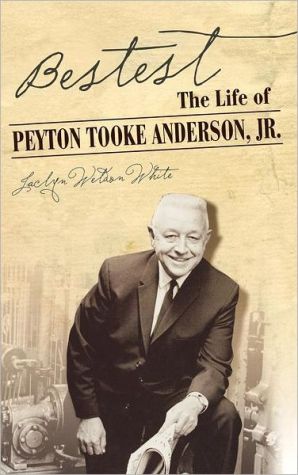

 |

|

The average rating for Bestest based on 2 reviews is 3 stars.
Review # 1 was written on 2016-07-23 00:00:00 Brandon Nelson Brandon NelsonHave learnt a GINORMOUS amount about military history, and how much it matters that we don't forget. Also learnt a lot about the Gentlemen's Clubs of Britain. Favourite anecdote was the Sea Captain and the lumpy cup-of-soup. Brilliant. Worth a sit down on a rainy Sunday evening. |
Review # 2 was written on 2019-03-16 00:00:00 Richard Ashcraft Richard Ashcraft"Who reads a dictionary for pleasure?", is the question from one of the back-cover blurbs for this abridgment of Webster's classic 1828 American Dictionary of the English Language. Schulman has compiled 1,500 of the most interesting words from the list, and along with Jill Lepore, provides an introduction to Webster's effort and a brief biography of the man himself. Now, your next question is likely to be "how can a list of words and definitions be interesting."? Well, Webster had a purpose in writing his dictionary and it went far beyond spelling (although he had an agenda there as well). He meant to inform, instruct, and inspire his readers. Webster was a devout Christian who made no apologies for it, and many of his definitions are short sermons. Indeed, in light of his need for the dictionary to sell well to meet the financial needs of his family, his inclusion of so much Christian thought and theology in his dictionary says much about the audience that would be receiving it. Make no mistake, America might not have had a Christian government, but it was a Christian nation in population, presumption practice, and purchasing power in 1828. Not enough to convince you to pick up this greatest-hits version of the original Webster? OK, Webster was also strong-willed and sure in his likes and dislikes, and had the personality of a professor, so his entries are now instructive and amusing for several other reasons which I'll illustrate with some examples pulled from the letter G: Usage: Webster unequivocally states that "Gun" was never used to refer to a pistol. He also delights in calling out differences in usage between England and America. Spelling: Webster had very definite views on spelling, some based on his theories of simplification and standardization, and some on his etymologies. Groom, as in "bridegroom", he insisted should be spelled and pronounced "goom" based on its origins. Definitions: Webster was not just a reflection of his times, but as a man of definite ideas was at times surprisingly modern, yet reflexively racist and sexist. For example a "Gipsy" is a race of "vagabonds which infest Europe, Africa and Asia, strolling about and subsisting mostly by theft, robbery, and fortune-telling"! To his credit, however, he is strong abolitionist. Shifts in meaning: Webster's staunch certitude, plus nearly 200 years of intervening usage, has resulted in definitions that seem oddly out of place today. For example, "giddy" refers to loss of balance, but apparently not then as now to the mental state of silliness that reflects a figurative loss of balance in a positive way. Synonyms and shades of meaning: Especially in adjectives that describe action or emotion, Webster takes particular care to illustrate slight differences in meaning. He spends some time describing different types of "gales", many of them particular to the main motive power of ships in his day that mean nothing to us today, but are interesting in what they reveal about his world. Etymology: Webster did all of his own writing and research (this was no group effort like the Oxford English Dictionary) and spent a great deal of time tracing word roots in search of proof of a single pre-Babel ur-language. Given the limitation of his skills and resources available form 1800 to 1828 when he was compiling his dictionary, some of his etymologies are amusing. "Gazette" (as in a small newspaper) is said to originate from the Venetion coin gazetta, which was the price of the first . . . Gazette). His entries on "Mother" and "Mud" are worth the price of admission alone--yes, Webster claims they have the same roots, an idea you might want to try out on your own mother at just the right moment. Let me know how that goes! So perhaps I have answered the question in the title in a way that convinces you to read this little gem. I'll confess, I would not have picked this book up if I had not just read H. L. Mencken's classic The American Language-4th Editin, which referenced Webster often (while the Mencken I read and reviewed was a very old used copy, it is available in newer abridged editions from Amazon). And as a fellow crusty old curmudgeon himself, Mencken had very specific ideas about language and Webster that makes this an interesting pair to read together, that will tune your ear to the nuances of language you hear every day and every place. |
CAN'T FIND WHAT YOU'RE LOOKING FOR? CLICK HERE!!!